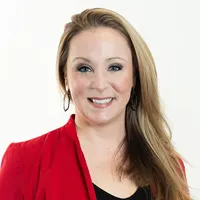Research or Regress
What if we could stop impaired driving?
One in four teen crashes involves an underage drunk driver. Penn State and MADD give parents the tools to have lifesaving conversations.
For teenagers, getting a driver's license is a key to freedom. But for parents, it can be a source of worry, especially since car accidents are one of the leading causes of death among teens, and one in four teen crashes involves underage drinking and driving. Yet, these deaths and injuries are preventable.
That’s why when Mothers Against Drunk Driving (MADD) wanted to create a program to help teens make safer choices, they turned to Robert Turrisi. Turrisi, a professor at Penn State, has spent years studying how parents can talk with their teen about alcohol and other drugs and how to reduce unsafe behaviors.

These conversations do save lives. We’re raising the next generation that’s going to end impaired driving.”
Catrina Clemens
The Challenge: Preventing Underage Drinking and Driving
Teen drivers between the ages of 16 and 19 are nearly three times more likely to be in a deadly car accident than older drivers. Unfortunately, alcohol plays a devastating role in many of these crashes. Roughly 5% of high school students have admitted to driving after drinking alcohol in the past month, while 17% have ridden with a driver who had been drinking. Making matters worse, teens are more susceptible to alcohol's effects and more likely to binge drink than adults.
The Power of Parents
While most parents may beg to differ, it turns out that teens do listen to their parents.
“A common misperception is that parents don’t have an influence when it comes to underage drinking,” said Catrina Clemens, vice president of strategic initiatives at MADD. “But when we look at the research, we see that parents are a huge influence when it comes to their child’s choices, specifically alcohol use.” The key is how parents talk to their kids.
To give parents the right tools, MADD and Turrisi created the "Power of Parents" handbook. The guide teaches parents how to have intentional and ongoing conversations that build and strengthen the parent-child bond.
Turrisi explained that the goal is for parents to "talk with their kids as opposed to at their kids," sharing experiences and helping them work through difficult decisions. He added that a stronger relationship makes it more likely that kids will listen and feel comfortable talking to their parents.
Prevention Through Research
When parents use the "Power of Parents" tools to talk with their kids, the results are life-saving. Kids are less likely to drive after drinking or get in a car with an impaired driver. They're also less likely to drink, experience related health issues, and develop a lifelong alcohol use disorder.
“These conversations do save lives,” Clemens said. “We’re raising the next generation that’s going to end impaired driving.”
Since launching, the "Power of Parents" program has reached nearly half a million parents and caring adults and has been translated into Spanish and adapted for middle schoolers. The handbook has also been updated to include information on cannabis and medication misuse.
“Dr. Turrisi’s research has been instrumental in our fight to end impaired driving and to ensure that the information we’re putting out into the community is research- and evidence-based,” said Clemens. “Losing research like his would be detrimental to our work.”
This is Penn State Research

What happens if it stops?
Learn more about the implications of federal funding cuts to your future.
